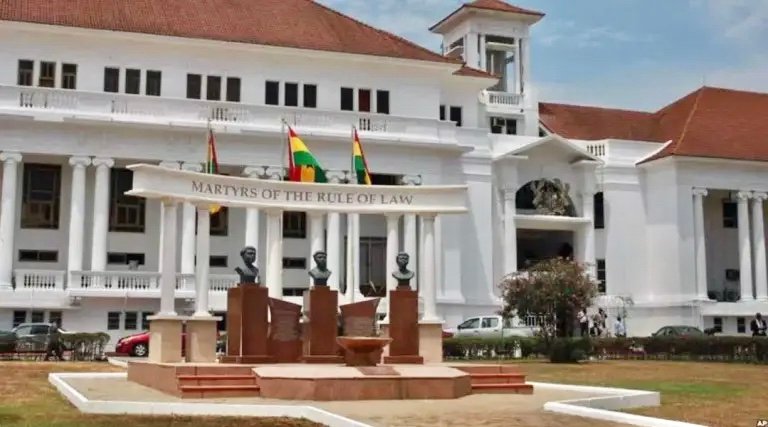In a landmark decision, the Supreme Court of Ghana has dismissed a petition challenging the constitutionality of the Human Sexual Rights and Family Values Bill, commonly referred to as the anti-LGBTQI bill. The bill, which has been a subject of intense debate, aims to criminalize advocacy for lesbian, gay, bisexual, transgender, queer, and intersex (LGBTQI) causes and impose penalties on individuals who fund or promote LGBTQI-related activities.
The petition, filed by broadcast journalist and lawyer Richard Dela Sky, argued that the bill violates several provisions of the 1992 Constitution, including Articles 33(5), 12(1) and (2), 15(1), 17(1) and (2), 18(2), and 21(1)(a)(b)(d) and (e). However, a seven-member panel led by Justice Avril Lovelace Johnson unanimously rejected the petition, stating that the suit failed to invoke its jurisdiction to interpret and enforce the Constitution properly.
The court’s decision has sparked mixed reactions across the nation, with some hailing it as a victory for Ghanaian cultural and family values, while others condemn it as a setback for human rights. Proponents of the bill argue that it is necessary to protect traditional values from perceived foreign influences, while critics, including human rights organizations, argue that it infringes on freedoms of expression, association, and equality.
The bill’s passage has been a contentious issue, with many questioning its constitutionality. However, the Supreme Court’s decision has put the issue to rest, at least for now. The court held that the bill had not yet been enacted into law and, as such, the suits were premature. This decision has significant implications for the LGBTQI community in Ghana, who may face increased persecution and discrimination if the bill becomes law.
The petitioners, Richard Dela Sky and equality advocate Amanda Odoi, had also argued that Parliament did not meet the constitutional quorum requirements of Articles 102 and 104 during the legislative process, rendering the bill’s passage unconstitutional. However, the court dismissed this argument, upholding the constitutionality of the legislative process.
As the nation grapples with the implications of the Supreme Court’s decision, many are left wondering what this means for the future of human rights in Ghana. The bill’s passage has sparked a broader national debate on the intersection of human rights and cultural preservation. While some argue that the bill is necessary to protect traditional values, others see it as a threat to the fundamental rights of all Ghanaians.
In the coming days and weeks, it is likely that the debate will continue, with many calling for a review of the bill and its potential impact on the LGBTQI community. The Supreme Court’s decision may have put the issue to rest for now, but it is clear that this is far from the end of the story.
As Ghana continues to navigate the complex issues surrounding human rights and cultural preservation, it is essential that all voices are heard and considered. The Supreme Court’s decision may have upheld the constitutionality of the anti-LGBTQI bill, but it is clear that this is a decision that will have far-reaching implications for the nation.
In conclusion, the Supreme Court’s decision to dismiss the petition against the anti-LGBTQI bill’s constitutionality is a significant development in the ongoing debate surrounding human rights and cultural preservation in Ghana. While the decision may have put the issue to rest for now, it is clear that this is far from the end of the story. As the nation continues to grapple with the implications of this decision, it is essential that all voices are heard and considered.
Source: Africa Publicity








